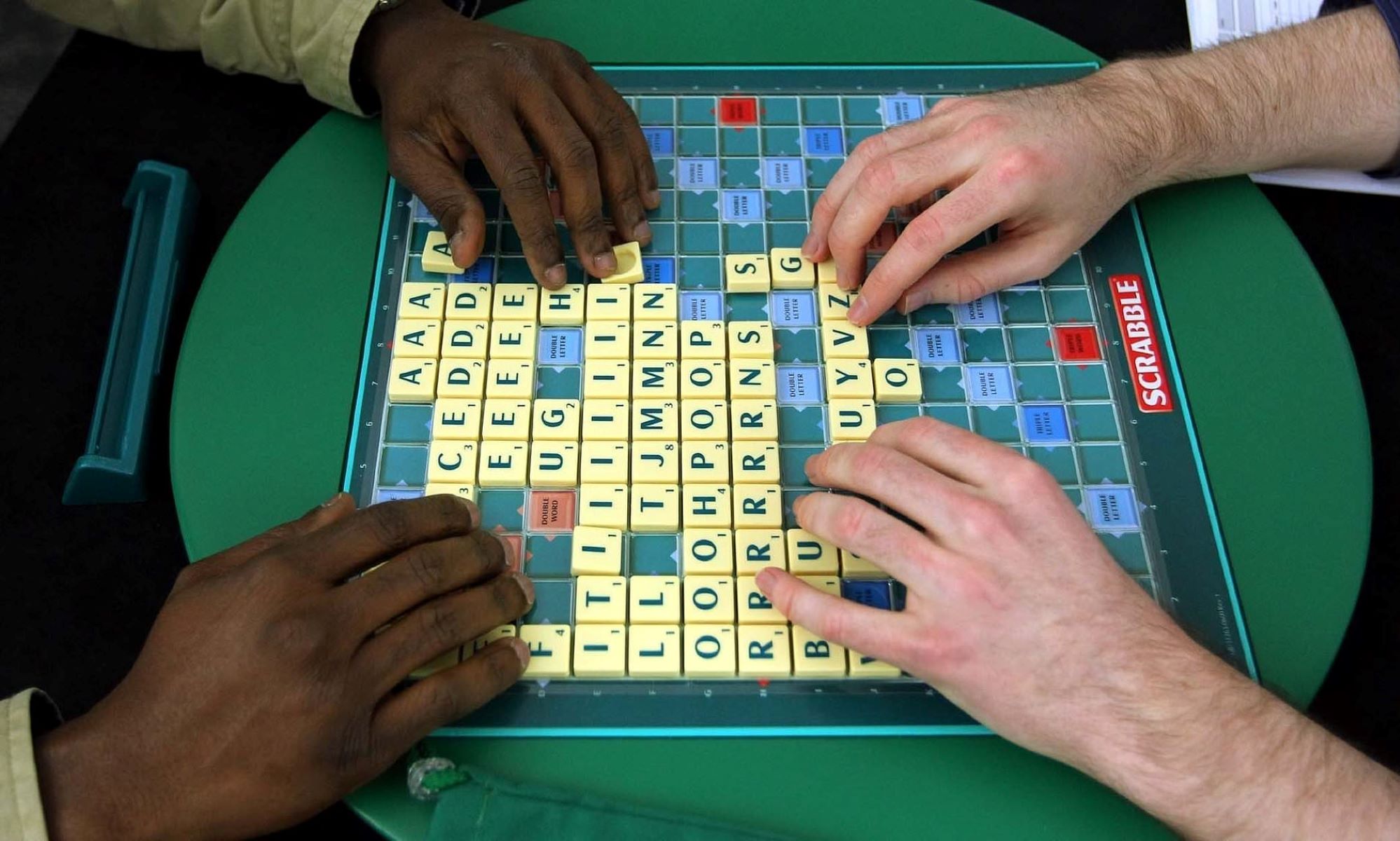Home>Parenting and Children>The Surprising Reason Little Kids Think ‘Stupid’ Is A Forbidden Word


Parenting and Children
The Surprising Reason Little Kids Think ‘Stupid’ Is A Forbidden Word
Published: February 10, 2024
Discover the surprising reason why young children consider 'stupid' a taboo word. Learn how to navigate parenting and children's language development.
(Many of the links in this article redirect to a specific reviewed product. Your purchase of these products through affiliate links helps to generate commission for Regretless.com, at no extra cost. Learn more)
Table of Contents
Introduction
Language is a powerful tool that shapes our thoughts, emotions, and interactions from a very young age. For children, the words they hear and use have a profound impact on their cognitive and emotional development. One particularly intriguing aspect of childhood language perception is the surprising taboo surrounding the word "stupid." While adults may not give much thought to this seemingly innocuous term, little kids often view it as a forbidden word, evoking strong emotions and reactions.
Understanding the reasons behind this perception can provide valuable insights into the complex world of childhood development. By delving into the influence of adults and peers, the role of emotions, and the impact of media and culture, we can unravel the intriguing dynamics that shape children's language perception. This article aims to explore the surprising reasons behind why little kids think "stupid" is a forbidden word, shedding light on the intricate interplay of language, emotions, and societal influences in early childhood development.
The Power of Language in Childhood Development
Language plays a pivotal role in shaping the cognitive, emotional, and social development of children. From the moment they begin to babble and form their first words, language becomes a fundamental tool for expressing thoughts, emotions, and needs. The acquisition of language skills is not merely a developmental milestone; it is a cornerstone of a child's ability to comprehend and navigate the world around them.
At an early age, children are like sponges, absorbing the words and phrases they hear from their caregivers, family members, and the environment. This process of language acquisition is not merely about learning vocabulary and grammar; it also involves understanding the nuances, emotional connotations, and social implications of words. Children begin to associate words with specific emotions, actions, and societal norms, shaping their perception of the world.
Moreover, language serves as a medium for cognitive development, enabling children to organize their thoughts, express their feelings, and engage in complex reasoning. As they expand their vocabulary and linguistic abilities, children gain the tools to articulate their experiences and make sense of their surroundings. Language empowers them to communicate their needs, seek help, and form connections with others, laying the groundwork for social interaction and emotional well-being.
Furthermore, the power of language extends beyond simple communication; it influences how children perceive themselves and others. The words they hear and use shape their self-image, confidence, and understanding of their capabilities. Positive affirmations and encouragement can bolster a child's self-esteem, while negative language can have detrimental effects on their self-perception and emotional resilience.
In essence, language is not merely a means of communication for children; it is a dynamic force that shapes their cognitive, emotional, and social development. Understanding the profound impact of language on childhood development provides valuable insights into the intricate interplay of words, emotions, and societal influences in shaping the next generation.
The Influence of Adults and Peers on Language Perception
From the earliest stages of childhood, adults and peers wield significant influence over a child's language perception. Caregivers, parents, and teachers serve as primary sources of language input, shaping the linguistic environment in which children develop. The words and phrases used by adults carry immense weight, as children look to them for guidance on what is acceptable, taboo, or emotionally charged.
Adults play a crucial role in modeling language behavior and setting linguistic boundaries. Their reactions to certain words or expressions can convey implicit messages about societal norms and emotional significance. When adults express strong emotions or disapproval in response to specific language, children internalize these cues, associating certain words with negativity, taboo, or emotional impact.
Furthermore, the influence of peers in shaping language perception should not be underestimated. As children interact and socialize with their peers, they engage in language exchanges that contribute to the formation of linguistic norms and taboos within their social circles. Peers become powerful agents of language influence, reinforcing certain words or expressions as desirable, unacceptable, or emotionally charged based on their collective experiences and interactions.
The interplay between adults and peers in shaping language perception is dynamic and multifaceted. Adults serve as initial gatekeepers of language, establishing the foundational framework for linguistic norms and emotional connotations. Meanwhile, peers contribute to the reinforcement and evolution of these linguistic norms through social interaction, peer pressure, and shared experiences.
In this intricate web of influence, children navigate the complex terrain of language perception, internalizing societal and emotional cues from both adults and peers. The words they hear from authority figures and the language they exchange with peers become integral components of their linguistic repertoire, shaping their understanding of what is deemed appropriate, impactful, or forbidden in the realm of language.
Understanding the profound influence of adults and peers on language perception provides valuable insights into the intricate dynamics that shape children's linguistic development. By recognizing the pivotal roles of adults and peers in shaping language norms and emotional connotations, we gain a deeper understanding of the multifaceted influences that contribute to children's perception of language.
The Role of Emotions in Language Taboos
Emotions play a pivotal role in the formation and perpetuation of language taboos among children. The intertwining of words with emotional significance creates a complex tapestry of linguistic norms, restrictions, and societal connotations. When it comes to the word "stupid," its taboo status is closely linked to the powerful emotions it evokes in children.
From a young age, children are keenly attuned to the emotional cues embedded within language. Words are not merely strings of sounds; they carry emotional weight and societal implications. The word "stupid" is particularly intriguing in this context, as it elicits strong emotional responses from children. Whether through direct reprimands, overheard conversations, or media exposure, children internalize the emotional charge associated with this word.
Emotions such as shame, embarrassment, and hurt are often intertwined with the use of the word "stupid." When directed at a child, it can inflict emotional wounds, leading to feelings of inadequacy and self-doubt. As a result, children learn to associate "stupid" with negative emotions, perceiving it as a hurtful and forbidden term.
Moreover, the emotional impact of "stupid" is not limited to individual experiences; it extends to societal perceptions and cultural norms. Children absorb implicit messages from their surroundings, including media portrayals, educational settings, and social interactions. These influences further reinforce the emotional taboos associated with the word, perpetuating its status as a forbidden term in the eyes of children.
The role of emotions in language taboos extends beyond individual reactions; it encompasses broader societal and cultural dynamics. The emotional charge attached to certain words shapes children's language perception, dictating what is deemed acceptable, hurtful, or taboo. By understanding the intricate interplay of emotions and language, we gain valuable insights into the nuanced factors that contribute to children's perception of words such as "stupid."
In essence, the emotional significance of language taboos profoundly influences children's linguistic development, shaping their understanding of societal norms, emotional impact, and acceptable language use. By acknowledging the role of emotions in language taboos, we can unravel the intricate web of emotional connotations and societal influences that underpin children's perception of certain words.
The Impact of Media and Culture on Children's Language Perception
Media and culture exert profound influence on children's language perception, shaping their understanding of words, emotional connotations, and societal norms. In today's digital age, children are exposed to a myriad of media sources, including television, movies, social media, and online content. These platforms serve as powerful vehicles for disseminating language and cultural messages, significantly impacting children's linguistic development.
Through media portrayals and cultural representations, children encounter a diverse array of language use, ranging from colloquial expressions to formal discourse. Media characters and personalities often embody linguistic traits that resonate with children, influencing their perception of what constitutes acceptable, impactful, or forbidden language. The use of certain words in media contexts can imbue them with emotional significance, shaping children's attitudes and reactions toward those words.
Furthermore, cultural norms and values embedded within media content play a pivotal role in shaping children's language perception. Whether through storytelling, advertisements, or cultural references, media reflects and perpetuates societal attitudes toward language use. Children internalize these cultural cues, assimilating language norms and taboos that are prevalent in their cultural milieu.
Moreover, the digital landscape exposes children to a diverse linguistic tapestry, encompassing regional dialects, slang, and linguistic variations. This exposure to linguistic diversity through media and cultural representations broadens children's understanding of language, introducing them to a rich tapestry of expressions and communicative styles. As a result, children navigate a complex interplay of linguistic influences, integrating media and cultural messages into their evolving language perception.
Cultural celebrations, traditions, and rituals also contribute to children's language perception, as they encounter specific language use associated with cultural practices. Whether through festive greetings, traditional stories, or cultural ceremonies, children learn to associate certain words and expressions with cultural significance, further enriching their linguistic repertoire.
In essence, the impact of media and culture on children's language perception is multifaceted and far-reaching. By recognizing the influence of media portrayals, cultural representations, and linguistic diversity, we gain valuable insights into the complex web of influences that shape children's understanding of language, emotions, and societal norms. Understanding the intricate interplay of media and culture provides a deeper appreciation of the multifaceted factors that contribute to children's perception of language.
Conclusion
In conclusion, the surprising taboo surrounding the word "stupid" among little kids is a testament to the intricate interplay of language, emotions, and societal influences in childhood development. The power of language in shaping cognitive, emotional, and social development cannot be overstated. From the earliest stages of language acquisition, children are immersed in a world where words carry emotional weight, societal connotations, and cultural significance. The influence of adults and peers in shaping language perception underscores the pivotal roles of caregivers, educators, and social circles in establishing linguistic norms and emotional connotations. Moreover, the role of emotions in language taboos highlights the profound impact of emotional cues on children's perception of certain words, shaping their understanding of what is deemed hurtful, forbidden, or acceptable.
Furthermore, the impact of media and culture on children's language perception illuminates the far-reaching influence of digital platforms, cultural representations, and linguistic diversity in shaping children's linguistic development. From media portrayals to cultural traditions, children encounter a rich tapestry of language use that contributes to their evolving understanding of words, emotions, and societal norms.
By unraveling the surprising reasons behind why little kids think "stupid" is a forbidden word, we gain valuable insights into the complex dynamics that underpin childhood language perception. Understanding the multifaceted influences of adults, peers, emotions, media, and culture provides a deeper appreciation of the intricate web of factors that shape children's linguistic development. As we continue to explore the fascinating terrain of childhood language perception, it becomes evident that words are not merely linguistic constructs; they carry emotional, societal, and cultural significance that profoundly impact children's cognitive and emotional worlds.
In essence, the taboo surrounding the word "stupid" among little kids serves as a compelling lens through which to examine the profound impact of language on childhood development. By recognizing the intricate interplay of language, emotions, and societal influences, we gain a deeper understanding of the multifaceted factors that contribute to children's perception of words and the complex web of influences that shape their linguistic development.














